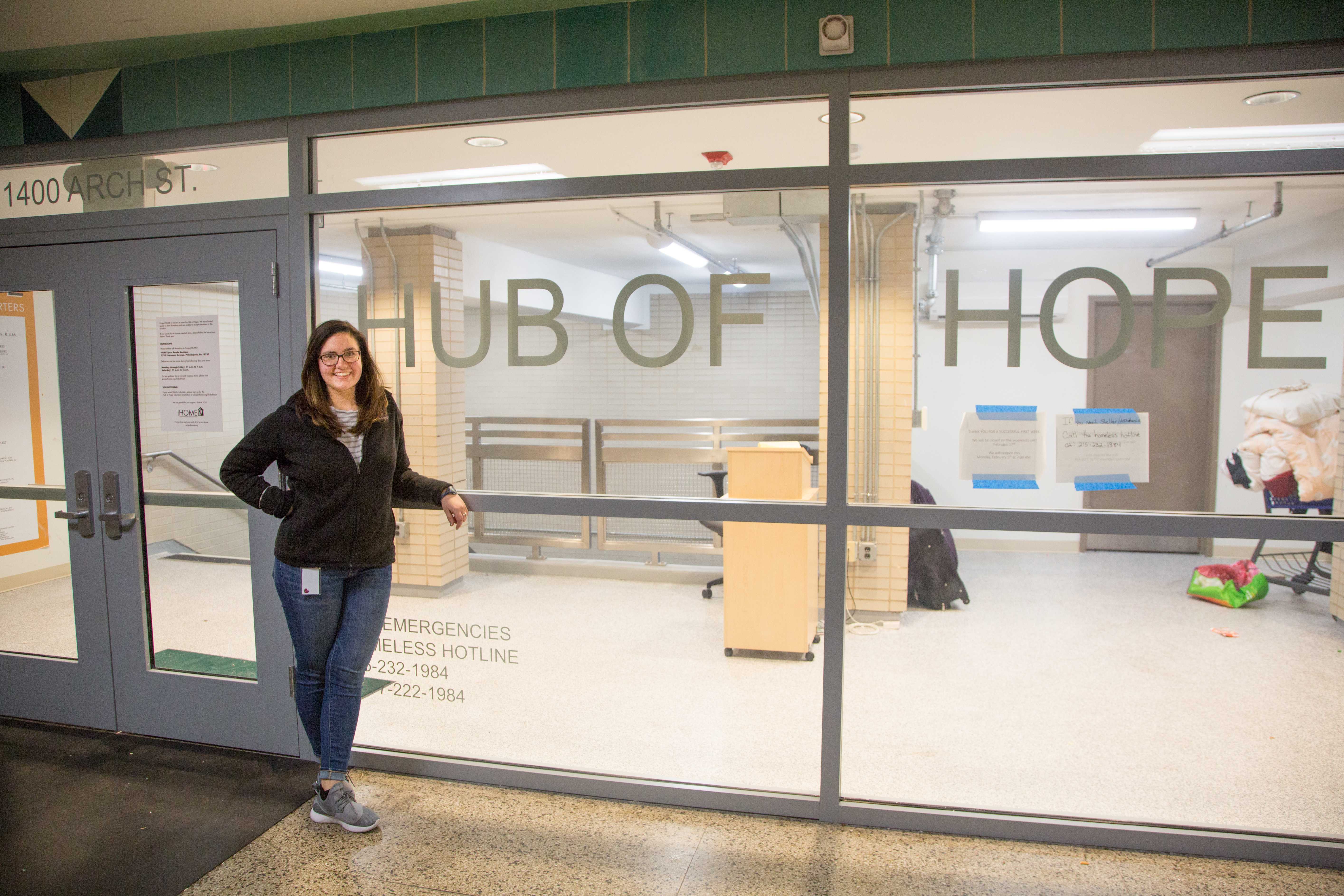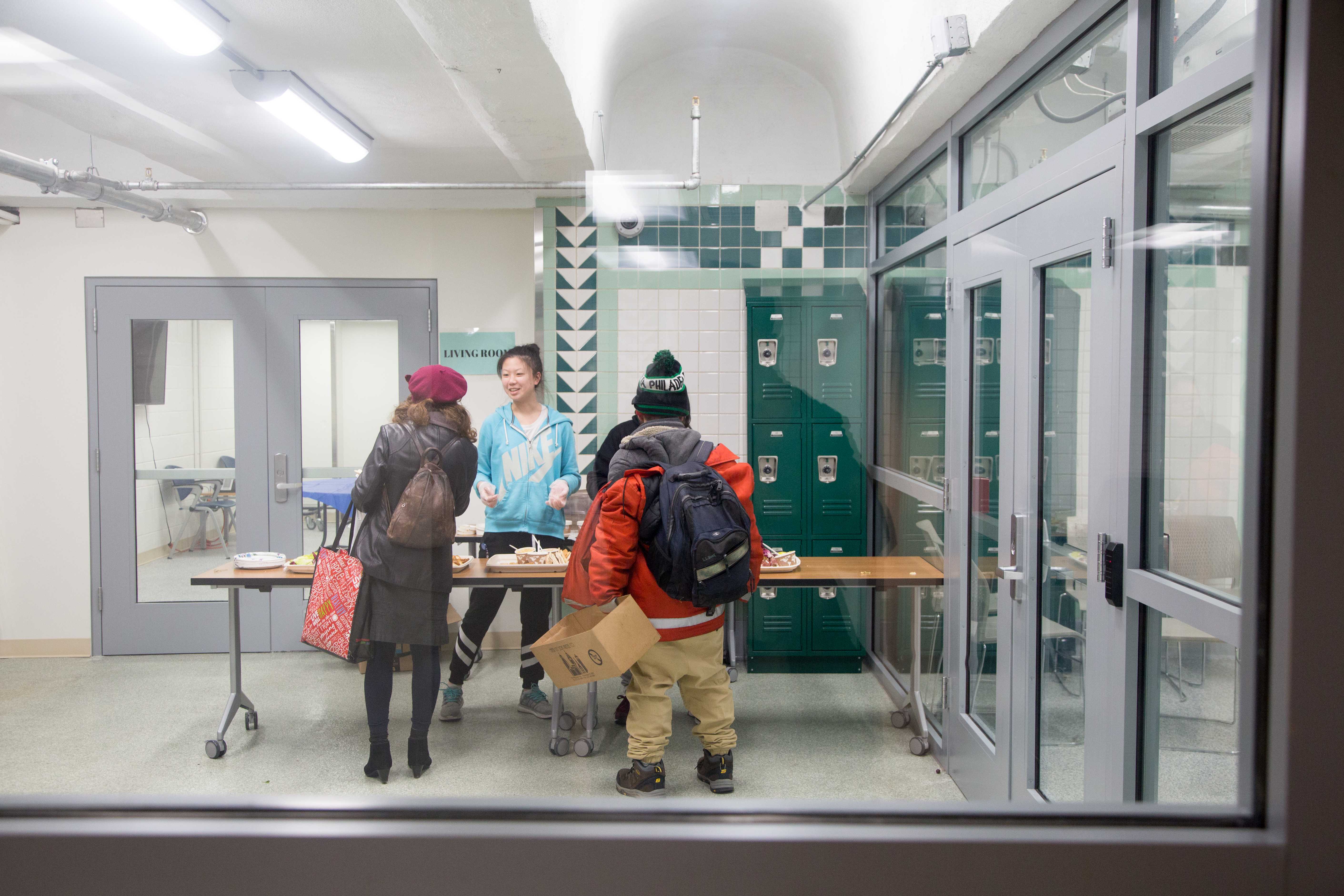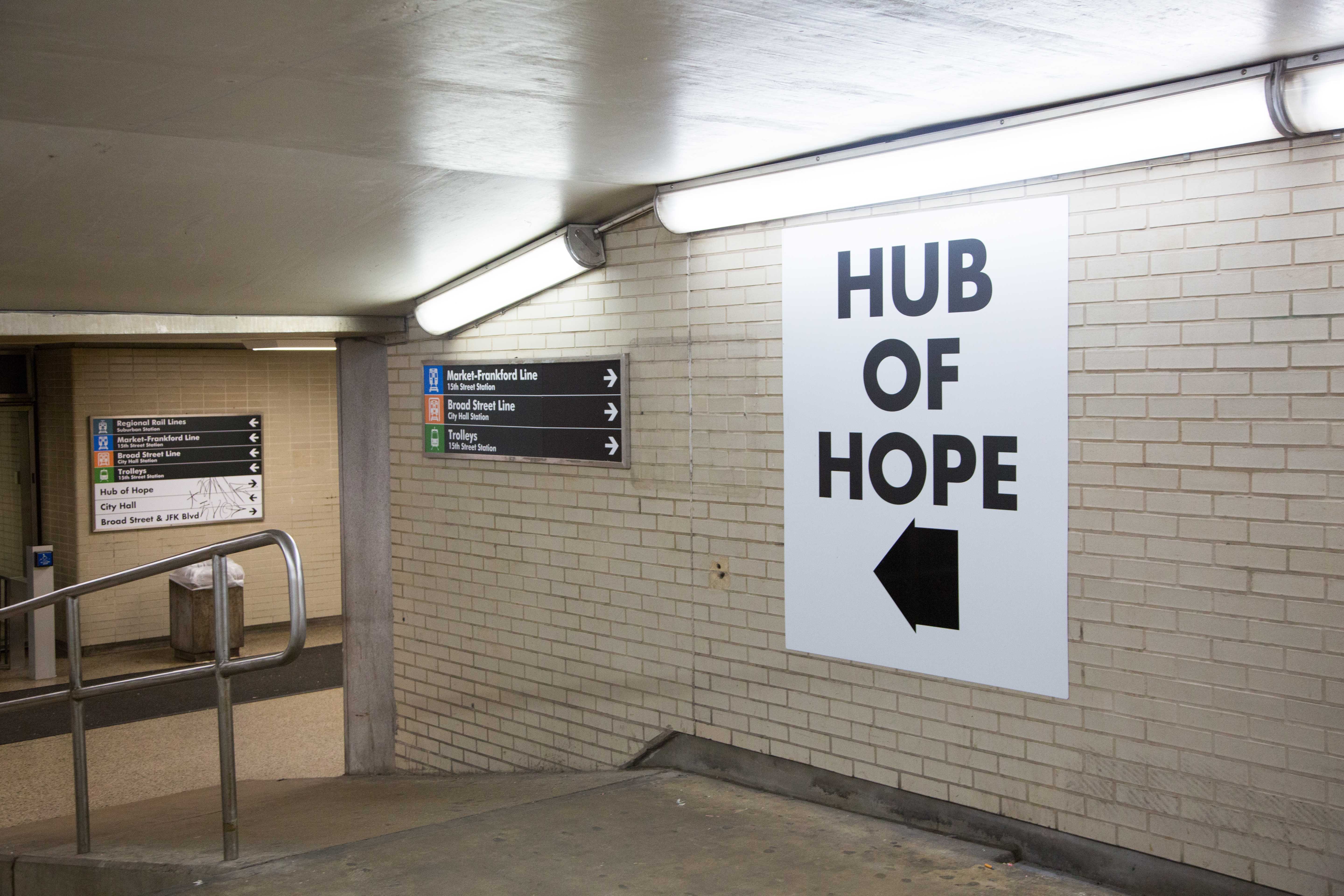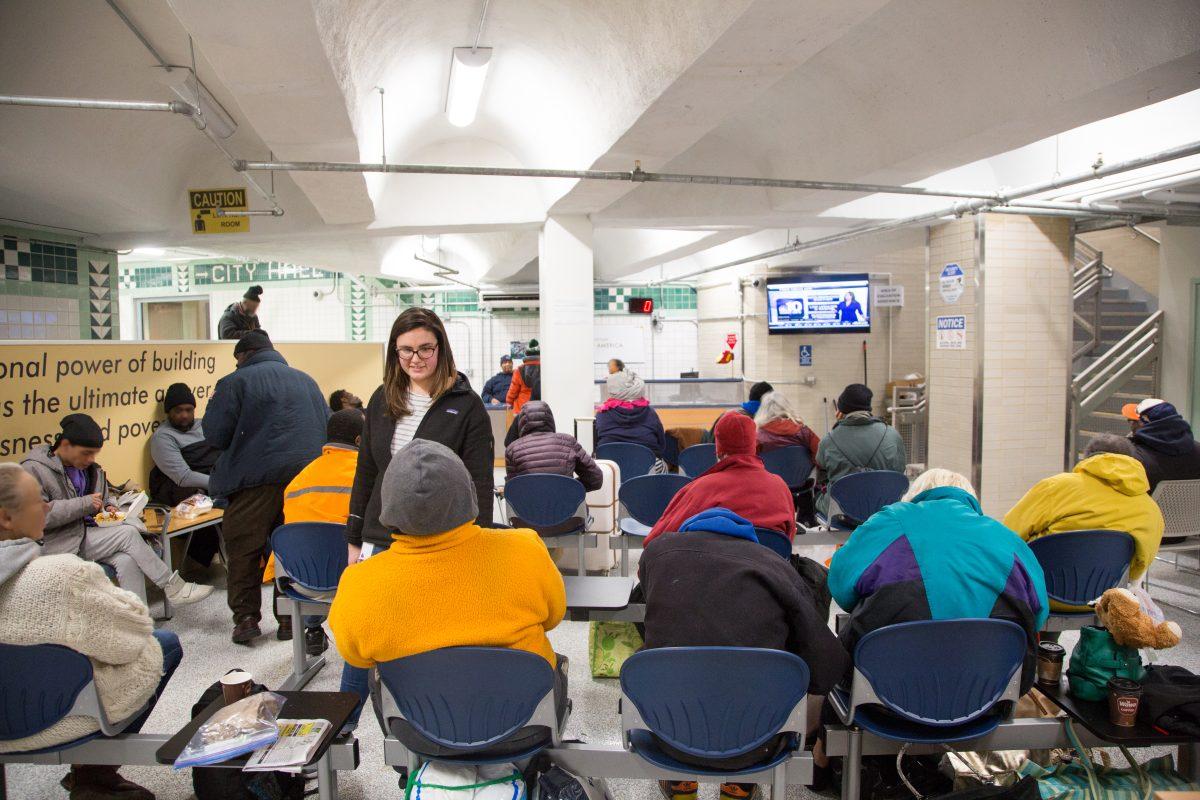Project HOME relocates and revamps hub in Suburban Station
When visitors leave the cold streets of the city and walk down the stairs into the Hub of Hope, they end up in a warm, well-lit reception area with many smiling faces. The smiles belong to staff and volunteers, but are also on the faces of people who may have just had a hot shower, dressed themselves in freshly laundered clothes, and are sipping on a warm cup of coffee, tea or hot chocolate.
Located under the 1500 block of Arch Street in Suburban Station, the Hub was opened at the end of January by Project HOME, a non-profit that provides services to people experiencing homelessness.
“The highest concentration of people experiencing homelessness is in the center of the city, so it makes sense to have a service providing space in Center City like the Hub,” said Emily Hopkins ’17, hospitality coordinator for the Hub.
The original Hub was created in a space that was a 900 square feet barber shop in the concourse below City Hall six years ago. It was open as a Winter walk-in center in the Suburban Station train stop from January to April for three hours during the day, Monday through Friday, and for two hours in the evenings.

The new hub is now 11,000 square feet and has a reception area, a commercial kitchen, a health services space, a case management office, an office that is a Federally Qualified Health Center (FQHC).
New services in the Hub include three showers stalls, three washers and dryers, clothing, food, snacks, coffee, and a living room that is bigger than the entire old hub was. The living room is modelled on a similar facility in Portland, Oregon, and according to Hopkins, was created so people who use the hub have “a space to call their own.”
“This is really a community,” Hopkins said. “I know a lot of them by name, and a lot of them know me by name, and that’s the case for most people who work in this field. We want this to be a respite and a place people can be safe, so when people realize that, they tend to come back.”
Hopkins became involved with Project HOME during her senior year when she was in a political science class called “Politics of Homelessness.” The class was taught by Scarlett McCahill ’06, an adjunct professor of political science who worked in the human resources department at Project HOME.
“Some of the course themes were understanding individual and structural factors that attribute to the likeliness that a person would experience homelessness,” McCahill said. “In addition to what students were reading, writing and discussing, they were also spending two to three hours a week doing direct service in a social service agency that provides emergency services to those who are unsheltered.”
Through the class and McCahill’s connections with Project HOME Hopkins was able to get an internship with the hub.

“I fell in love with everything Project HOME stands for and the people and especially the community that they serve,” Hopkins said.
In 2003, when McCahill was a student at St. Joe’s, she had a job as a service scholar at the Faith Justice Institute.
“Project HOME opened a large education and technology center in North Philadelphia,” McCahill said. “I brought students there to volunteer as adult literacy tutors. After that I kept an eye on Project HOME’s work.”
In the more than ten years since graduating from St. Joe’s, McCahill has acquired a lot of experience in multiple roles at Project HOME. One of these roles included coordinating medical services and bringing doctors and psychiatrists into The Hub when it was the seasonal walk-in center.
“I think one misconception in the general public is that people who are homeless don’t have relationships around that,” McCahill said. “Many people do have relationships with other folks who are unsheltered. The community is already very strong.”

A current St. Joe’s student, Claudia Plaza Barnils ’18, is interning with Project HOME this semester after finding an internship through the Sociology department.
“There’s a lot of things that need to be done in order to end homelessness and there’s always long-term solutions and short-term solutions,” Plaza Barnils said.
The Hub staff emphasizes engagement with people, who McCahill calls guests, who make use of Hub services, by getting to know everyone by name.
“What we try to do is make sure that we know everyone coming in here,” Hopkins said. “Because you don’t realize how amazing it is to be called by your name until you aren’t called by your name for a long time.”
Crystal Williams used the Hub back when it was a smaller space. Homeless for two years, she now goes to the new hub and said the humanitarian effort is wonderful.
“If they could open up a couple more in different locations and spread out that would be great,” Williams said. “Everything that they have is very important to your livelihood here while you transition from point A to point B or you start over.”
Vilma Fermin ’20 contributed to this story.














































